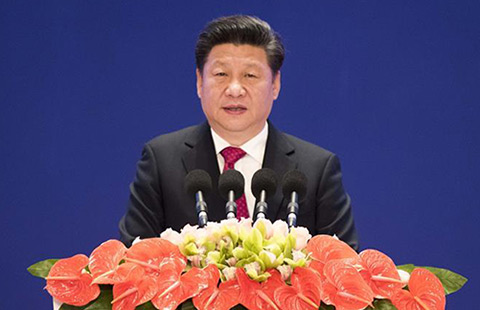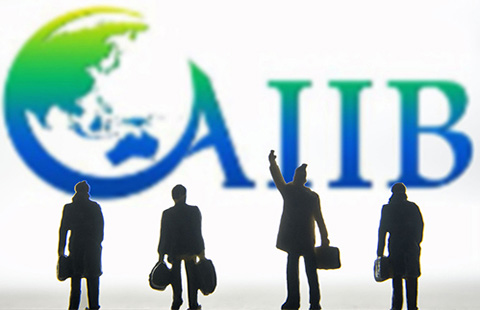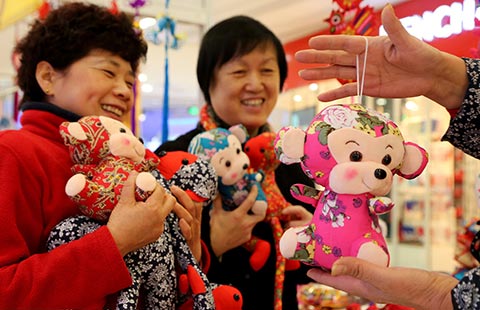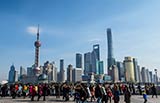Australia to coast on the milky way to export boom
By Wang Zhuoqiong (China Daily) Updated: 2016-01-18 09:56The China Australia Free Trade Agreement, which took effect on Dec 20, promises to boost the dairy industry in both countries through fresh investments, tie-ups and joint ventures.
Dairy is important for China. The country imported over 2 million tonnes of it worth $7.2 billion, which makes it the world's largest importer of milk products.
China's dairy import volumes have increased by over 70 percent since 2010-11, according to Charlie McElhone, group manager, trade and strategy, Dairy Australia, the body of dairy farmers and the industry. The FTA could help the dairy industry in both countries to collaborate and meet surging global demand, he said. "That China is now the No 1 export market in terms of dairy volumes is very important for Australia's dairy industry as well as bilateral ties."
Chinese consumers regard Australian dairy products as clean, green and safe. In this context, the FTA acquires importance as it will progressively remove tariffs on certain imports, including dairy, from Australia over the next 12 years. This will likely increase the profitability of the dairy industry, he said.
Chinese companies have strong sales and distribution networks and an in-depth understanding of not only the country's large, complex and growing retail, food service and ingredients markets but investments needed to make them all future-ready, he said.
"Leveraging their respective strengths, Chinese and Australian dairy companies are already collaborating," said McElhone.
Song Liang, an independent Chinese dairy expert, said the FTA will encourage more Chinese investors to seek opportunities in Australia's dairy sector, which will help the latter to grow.
Australia's dairy products will now find easier access to Chinese markets. So far, New Zealand's products reigned supreme in China as they enjoy lower raw material prices.
"As the need for top-quality imported dairy grows in China, reliable international suppliers become important," said McElhone.
Whole milk powder, for instance, is now imported almost solely from New Zealand, which garnered 41 percent of total Chinese dairy imports in 2014 and 2015.
But things will change sooner than later. The FTA has already led New Hope, China's biggest private company with interests in agriculture, financial services and real estate, to agree a deal with Australia's Freedom Foods and Perich Group to invest up to $500 million in Australian dairy farms and processing plants.
"With increasing demand from markets in China and Southeast Asia for high-quality, value-added products, Australia, through companies such as Freedom Foods and Perich Group, is well placed to play an important role in the development of this supply chain," said Rory Macleod, managing director, Freedom Foods.
Freedom Foods said it has a supply arrangement with New Hope for long-life milk. It is now considering collaboration in other strategic branded dairy operations in Australia and overseas to take its products to China. Perich Group, New Hope and other investors will contribute most of the equity for farm investment in Australia, which will start next year.
In November, New Zealand dairy player Fonterra Co-operative Group Limited received the approval from the board of Beingmate Baby and Child Food Company Ltd, a leading Chinese infant food manufacturer, to establish a joint venture to buy the former's Darnum plant in Victoria, Australia.
Beingmate will own 51 per cent of the joint venture and Fonterra the rest, and will also run the plant. The joint venture will make nutritional powders, including infant formula, for both companies and others.
Theo Spierings, chief executive of Fonterra, said China is a key strategic market, and the global partnership with Beingmate provides significant growth potential for both companies.
"The partnership will create a fully integrated global supply chain from the farm gate direct to China's consumers, using Fonterra's milk pools and manufacturing sites in New Zealand, Australia, and Europe.
"By working with Beingmate, we are creating additional demand for ingredients and high-value paediatric and maternal nutrition products made from our New Zealand milk, complemented by milk drawn from other international milk pools."
Dairy is just one key aspect of bilateral trade. China is Australia's largest export market for both goods and services, accounting for nearly a third of total exports. The country is also a growing source of foreign investment in Australia. So, the FTA will define the next phase of bilateral economic ties, experts said.
- Historic China-Australia FTA enters into force, benefiting both countries
- China-Australia FTA legislation passes through Australia's lower house
- Australia's Opposition approves terms of China-Australia FTA
- China-Australia FTA legislation to remain unchanged
- Chinese ambassador urges Australia not to let China-Australia FTA slip away
- E-shoppers to get more access to the world
- Chinese crowdfunding on rise amid start-up boom
- Concept cars unveiled at Detroit Auto Show
- Policies help NEV 2015 output to quadruple to 379,000 units
- Chinese luxury shoppers increasingly turning online: KPMG
- As VC firms turn prudent, shakeout hurts O2O startups
- All eyes on key economic data of 2015
- Free trade agreements that will transform China Inc

















